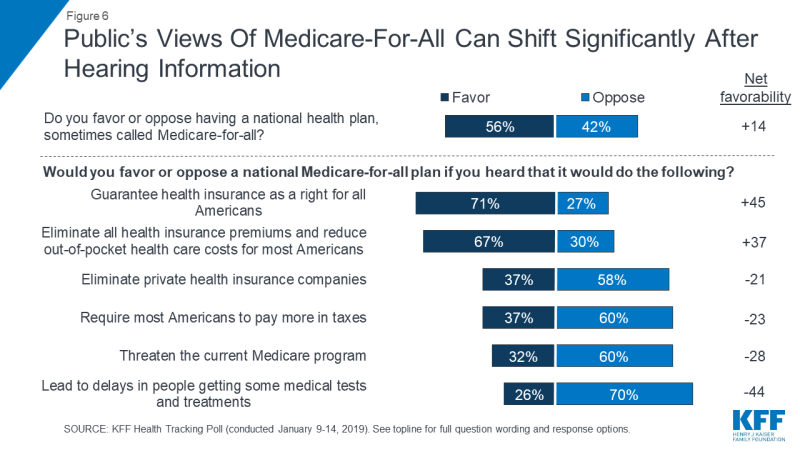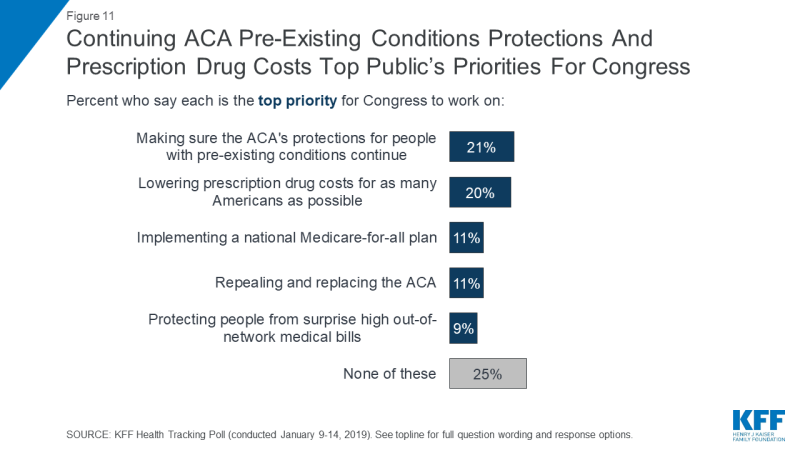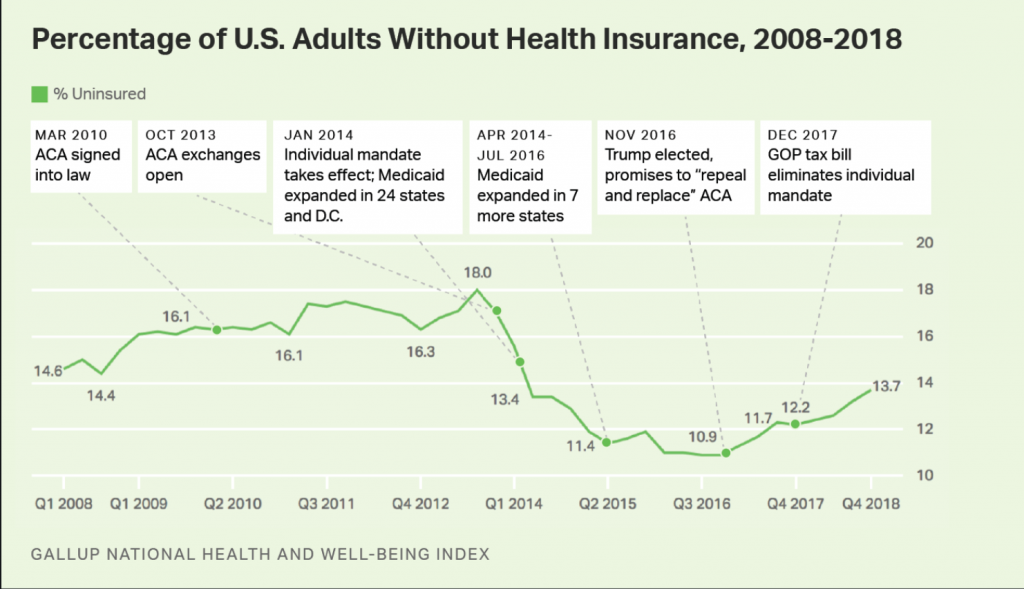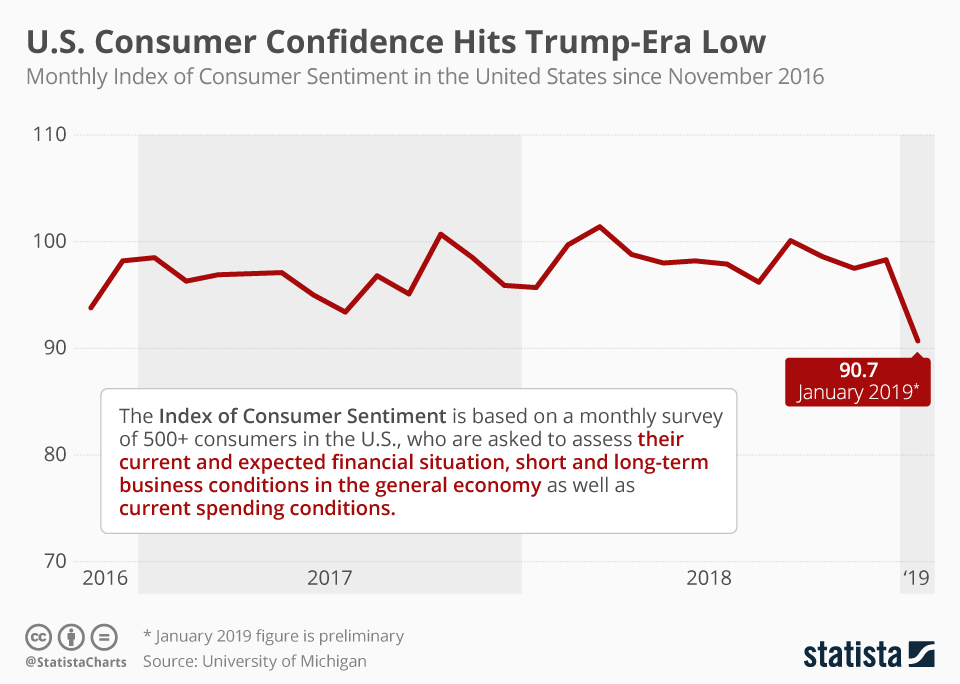Most Americans like the idea of universal health care as a guaranteed right, Kaiser Family Foundation learned in this month’s Health Tracking Poll.
This finding reinforces the voter turnout for the 2018 mid-term elections which was largely driven by peoples’ concerns for losing health access for pre-existing conditions.

The first chart notes important nuances under the majority support for a national health plan which, in this case, asked whether people favored a plan “sometimes called ‘Medicare for all.'”
I note that note all national health plan designs would need to be tied to Medicare. There are many ways to deliver universal health care to citizens beyond this concept.
Key features most Americans favor are indeed health insurance as a right, and the elimination of premiums and reduced out-of-pocket costs for most Americans.
Paying more in taxes and eliminating private insurance companies would be opposed by most people.
In addition, the vast majority of people would be concerned about a national health plan leading to delays in getting treatment, and to the potential erosion of the current Medicare program.
Most Americans believe in building onto existing programs — that is, making incremental changes to what they know-they-know — like expanding Medicaid or Medicare buy-in for people who don’t have health coverage.
 The top two priorities, given the choice of only one, are tied: ensuring that the Affordable Care act’s protections for people with pre-existing conditions continue, and lowering the cost of prescription drugs.
The top two priorities, given the choice of only one, are tied: ensuring that the Affordable Care act’s protections for people with pre-existing conditions continue, and lowering the cost of prescription drugs.
These two health consumer objectives remain consistent with polling conducted approaching the 2018 mid-term elections.
Other issues, like a new Medicare-for-All plan, repealing/replacing the ACA, and protecting people from surprise medical bills were less important to people.
Majorities of people across party affiliation also favor a Medicare and/or Medicaid buy-in, reinforcing that Americans are more comfortable adapting and using the insurance channels they know and trust versus creating an entirely new system. Specifically:
- 69% of Republicans, 75% of Independents, and 85% of Democrats favor allowing people between 50 and 64 to buy insurance through Medicare (overall 77%)
- 64% of Republicans, 75% of Independents, and 85% of Democrats favor allowing people who don’t get insurance at work to buy into their state Medicaid program (overall 75%)
- Most Independents and Democrats would favor creating a national government administered health plan like Medicare for everyone, allowing people to keep their current coverage — nearly one-half (47%) of Republicans agree with this option (overall 74%)
- Medicare-for-All gets less traction with Republicans (only 23%) compared with 53% of Independents and 81% of Democrats (overall 56% of all Americans).
 Health Populi’s Hot Points: The green chart is Gallup-Sharecare’s latest Health and Well-Being Index poll on the percent of Americans without health insurance. This reached a four-year high, the green line illustrates, up to 13.7% from a low of 10.9 percent in 2016 at the moment when President Trump promised to “repeal and replace” the ACA.
Health Populi’s Hot Points: The green chart is Gallup-Sharecare’s latest Health and Well-Being Index poll on the percent of Americans without health insurance. This reached a four-year high, the green line illustrates, up to 13.7% from a low of 10.9 percent in 2016 at the moment when President Trump promised to “repeal and replace” the ACA.
Of course, this has not happened. While ACA enrollment has eroded, and the law challenged in the Texas courts, it still survives.
Uninsured rates grew most acutely for women, young adults, and low-income people.
The KFF poll reinforces that Americans well appreciate the value of being health-insured, especially among people who are already sick and being treated in the health care system. Prescription drug costs, too, remain high-ranking in voters’ priorities with health care being such an acute pocketbook issue.
 Health care costs are an integral part of family budgets in 2019. I notice that U.S. consumer confidence has hit a Trump-era low, according to the University of Michigan’s index of consumer sentiment. This is graphed here by my friends at Statistic, illustrating a dramatic drop in peoples’ sentiment since the November 2016 Presidential election.
Health care costs are an integral part of family budgets in 2019. I notice that U.S. consumer confidence has hit a Trump-era low, according to the University of Michigan’s index of consumer sentiment. This is graphed here by my friends at Statistic, illustrating a dramatic drop in peoples’ sentiment since the November 2016 Presidential election.
Consumer sentiment is a view on consumers’ own tea leaves looking into their future financial situation. Given uncertainties about health insurance security, health care costs, in light of the current U.S. government shutdown, it’s clear health care will be on voters’ minds until people perceive they are health access-and-cost-secure. It is no wonder more Americans are warming to the concept of universal health care as a right for all.
The post Americans Are Warming to Universal Health Care, Kaiser Poll Finds appeared first on HealthPopuli.com.
Americans Are Warming to Universal Health Care, Kaiser Poll Finds posted first on http://dentistfortworth.blogspot.com
No comments:
Post a Comment